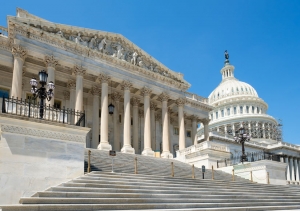HSA
The Internal Revenue Service (IRS) released Rev. Proc. 2020-45 on October 26th with 2021 inflation adjustments for various provisions of the Internal Revenue Code (the “Code”). Included in the announcement are maximum contribution limits for Flexible Spending Accounts (FSAs) and other employee benefit programs. A summary of some of the 2021 contribution limits has been provided below.
Technology has influenced employee behavior and changed expectations. They are no longer comparing good and services, but instead experiences. As a result, they are demanding innovation, engagement, and personalization across every aspect of thier lives, including healthcare.
As healthcare costs continue to rise, consumers are becoming increasingly responsible for out-of-pocket expenses, regardless of their health plan type. By pairing every health plan with a consumer-driven account, your clients will not only save money but also provide their employees with a better way to manage their healthcare spending.
In just a very short period of time, the Coronavirus Disease (COVID-19) is impacting health plans and health care throughout the country. Here are some key examples of recent developments:
Health Savings Accounts (HSAs) allow eligible individuals to put money aside tax-free to pay for out-of-pocket medical expenses, but HSAs work differently than other tax-advantaged accounts. Here are 10 helpful tips and reminders as the year comes to an end.
-
HSA contributions for 2019 can be made up until the tax filing deadline, which is April 15, 2020.
- The maximum annual contribution to an HSA for 2019 is $3,500 for those covered by a single-only qualified high deductible health plan (HDHP) and $7,000 for those covered by a family HDHP.
Health Savings Accounts (HSAs) have seen tremendous growth in the past decade and are quickly becoming one of the most popular employee benefits. These accounts allow individuals who are enrolled in a Qualified High Deductible Health Plan to use tax-free dollars to pay for out-of-pocket healthcare expenses for themselves and their families.
Over the years, HSAs have been touted as a way to pay for out-of-pocket medical expenses with tax-free dollars. However, recently HSAs have been making headlines as an alternative to 401(k) plans and other retirement plans.
Last week, the House of Representatives (House) passed two bills which would expand Health Savings Accounts (HSAs) and make other changes to the healthcare industry. Below is a summary of key HSA provisions included:
As a benefits professional, you know that navigating the benefits industry can sometimes be a tricky endeavor. Let’s face it; employee benefits can be confusing—even for those of us who deal with this stuff for a living. Whether you’re a Human Resource Manager, an insurance agent or benefits consultant, people are counting on you to have all the answers. Flex is here to make sure you get them.
Benefits Buzz
Enter Your Email









